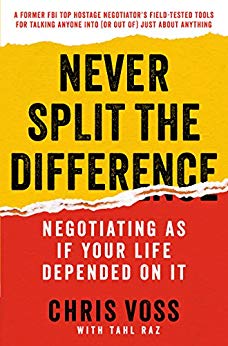(Update 2023-03: I wrote this in 2020 when GPT-3 was highly hyped, but ultimately made only <1% of the splash that the monstrous ChatGPT made 3 years later. If I had to rewrite this today, I’d 1) think more kindly about defensibility, especially through deep product, user experience, and marketing/distribution (see Elad Gil article); 2) be more pessimistic about how much value foundation models can capture, given open-source competitors and possibly declining returns to increasing scale. But the rest of it seems to have held up well, especially around how easily incumbents can integrate LLM’s into their products and thus
We Stopped Arguing About Chores After Making One Spreadsheet

If you live with someone, see if this sounds familiar: These tensions are common between people living together, whether that’s between roommates, romantic partners, or families. If you’ve had lingering issues about this, they’ve probably heightened by the COVID-19 quarantine. A year ago, we solved all of our arguments about chores by making one simple spreadsheet. It tracks all of our household chores, how often they should be done, and who’s doing it. Here I describe how the spreadsheet works, then how you can make your own.
Is the Ivy League Worth It? Harvard Grad Explains

I got questions from a high school student about the Ivy League. My response are below. I build businesses, mainly in online education. Brief bio here. No – I was pre-med and went into an MD-PhD program, but decided to drop out to build businesses. I explain why here. Yes – mainly with classmates. Some became my best friends, wife, business partners, and thinking partners. Like with high school, you won’t stay in touch with the vast majority of people you know, but hopefully you’ll have a handful who will stay in your close circle for decades. I don’t keep in touch with
The Virgin Way Book Summary, by Richard Branson
Want to get the main points of The Virgin Way in 20 minutes or less? Read the world’s #1 book summary of The Virgin Way by Richard Branson here.
Read a quick 1-Page Summary, a Full Summary, or watch video summaries curated by our expert team.
The Ten-Day MBA Book Summary, by Steven A Silbiger
Want to get the main points of The Ten-Day Mba in 20 minutes or less? Read the world’s #1 book summary of The Ten-Day Mba by Steven A Silbiger here.
Read a quick 1-Page Summary, a Full Summary, or watch video summaries curated by our expert team.
15 Examples of Blue Ocean Strategy

Blue Ocean Strategy is a powerful framework for finding new business opportunities. But it’s not always clear how to create a blue ocean strategy for yourself. We’ll cover 15+ Blue Ocean Strategy examples so you can figure out how to create your own blue ocean.
10 Red Ocean Traps You Must Avoid

Blue Ocean Strategy ends with ten Red Ocean Traps that can deter you from creating blue oceans or that jeopardize your execution. These will be phrased as myths that are then debunked:
Pioneer-Migrator-Settler Map

What is the Pioneer-Migrator-Settler Map? What does it mean for your business and Blue Ocean Strategy? Learn how you should have projects in each stage of the lifecycle, from pioneers to migrators to setller projects.
Cirque du Soleil – Blue Ocean Strategy, Explained

Cirque du Soleil is one of the key examples given in Blue Ocean Strategy. How did a circus performer create a blue ocean outside of the red ocean of circuses, and create an incredibly valuable company? Learn more about Cirque du Soleil’s Blue Ocean Strategy here.
Best Summary: Never Split the Difference, by Chris Voss

Never Split the Difference argues that emotion, not logic, determines the success or failure of negotiations. Being emotionally intelligent and empathetic is how you draw the crucial information out of your counterpart that gives you a decisive advantage. You get what you want by gaining a deeper understanding of what they want.
This approach flies in the face of a lot of traditional, old-school negotiating theories. Never Split the Difference argues that rational self-interest, win-win negotiating, getting to yes, and other traditional negotiating concepts are incomplete—they ignore the actual human beings doing the negotiating. We’re not robots, precisely calculating our best interests and formulating rational offers and counter-offers designed to maximize our utility.